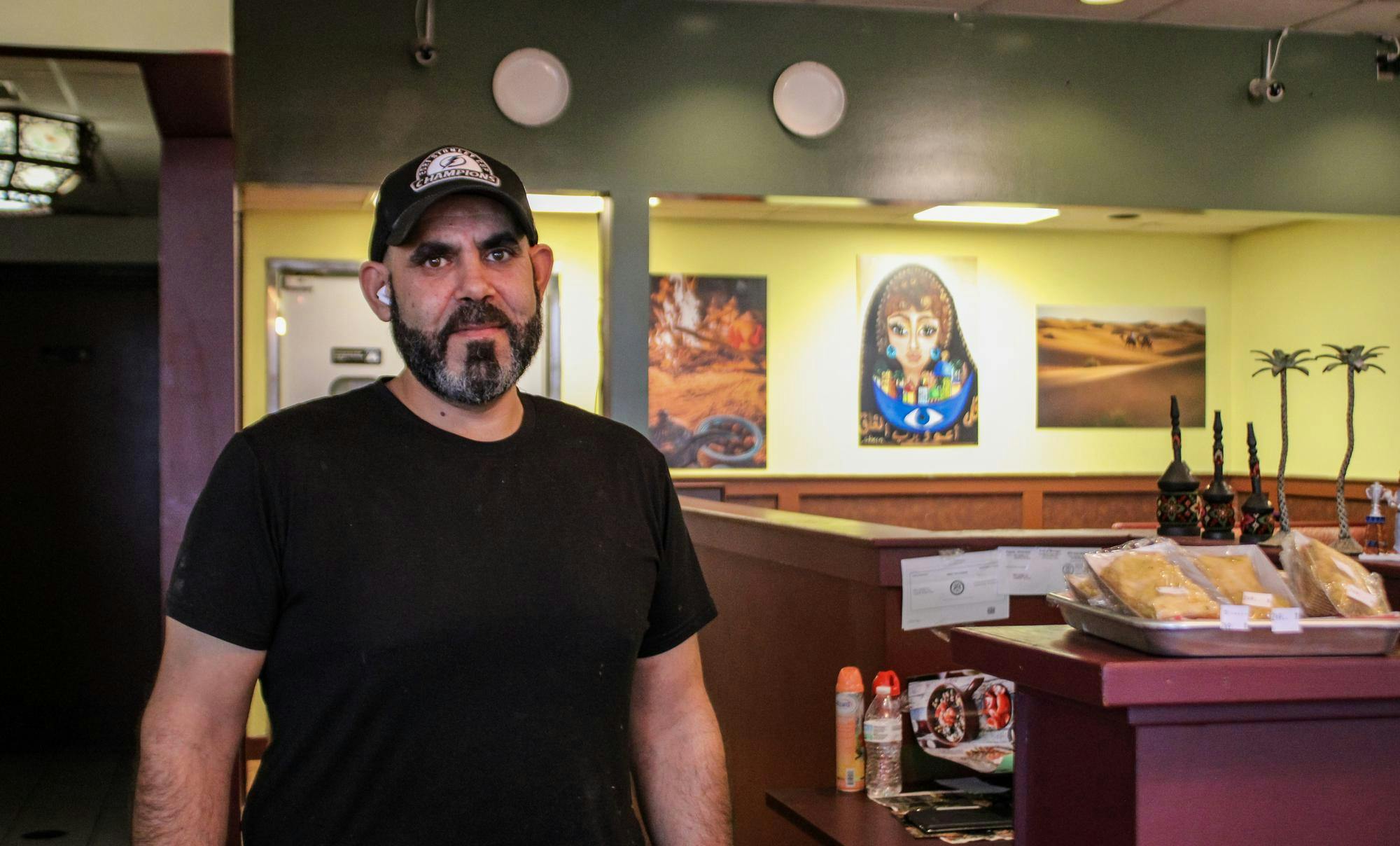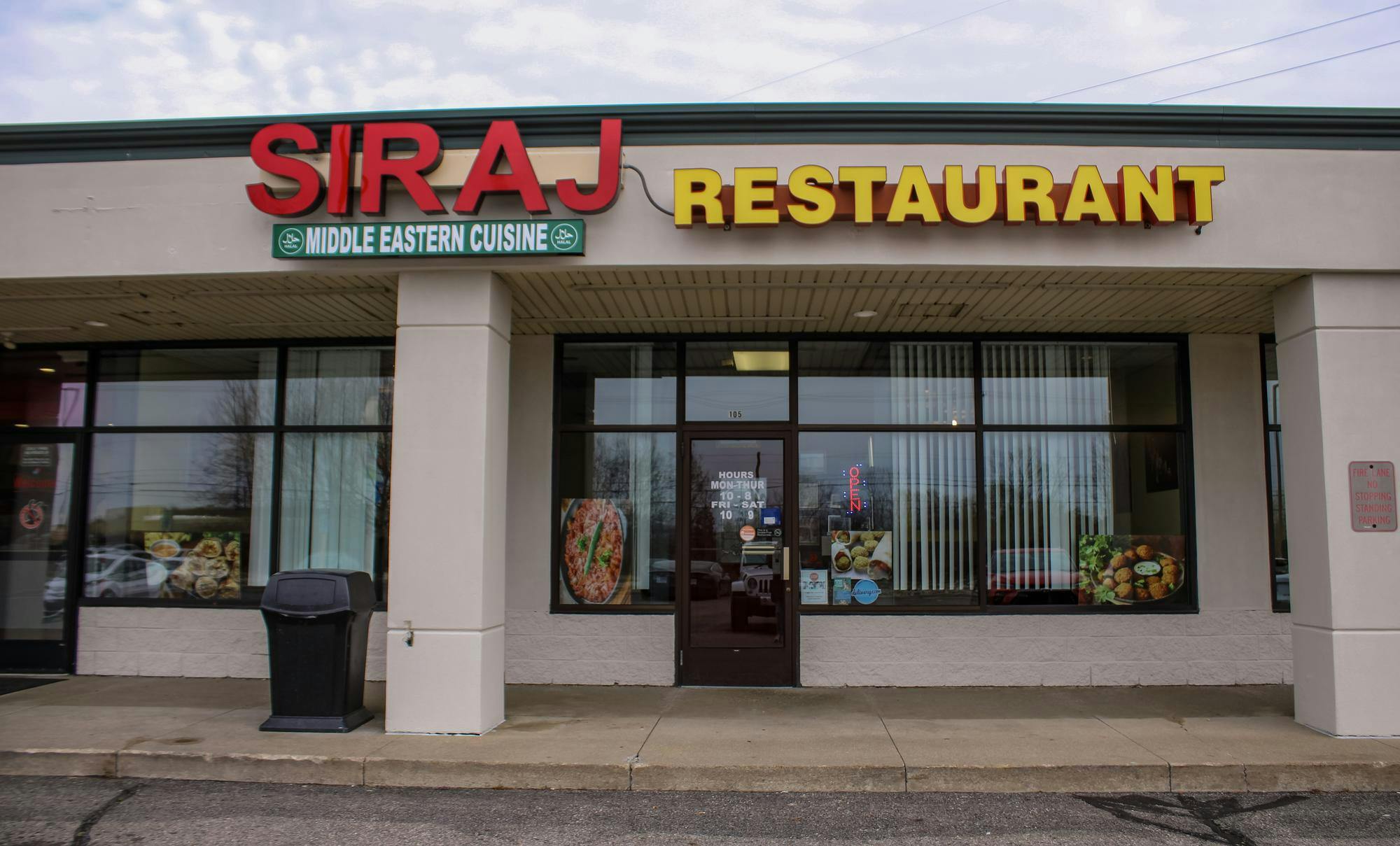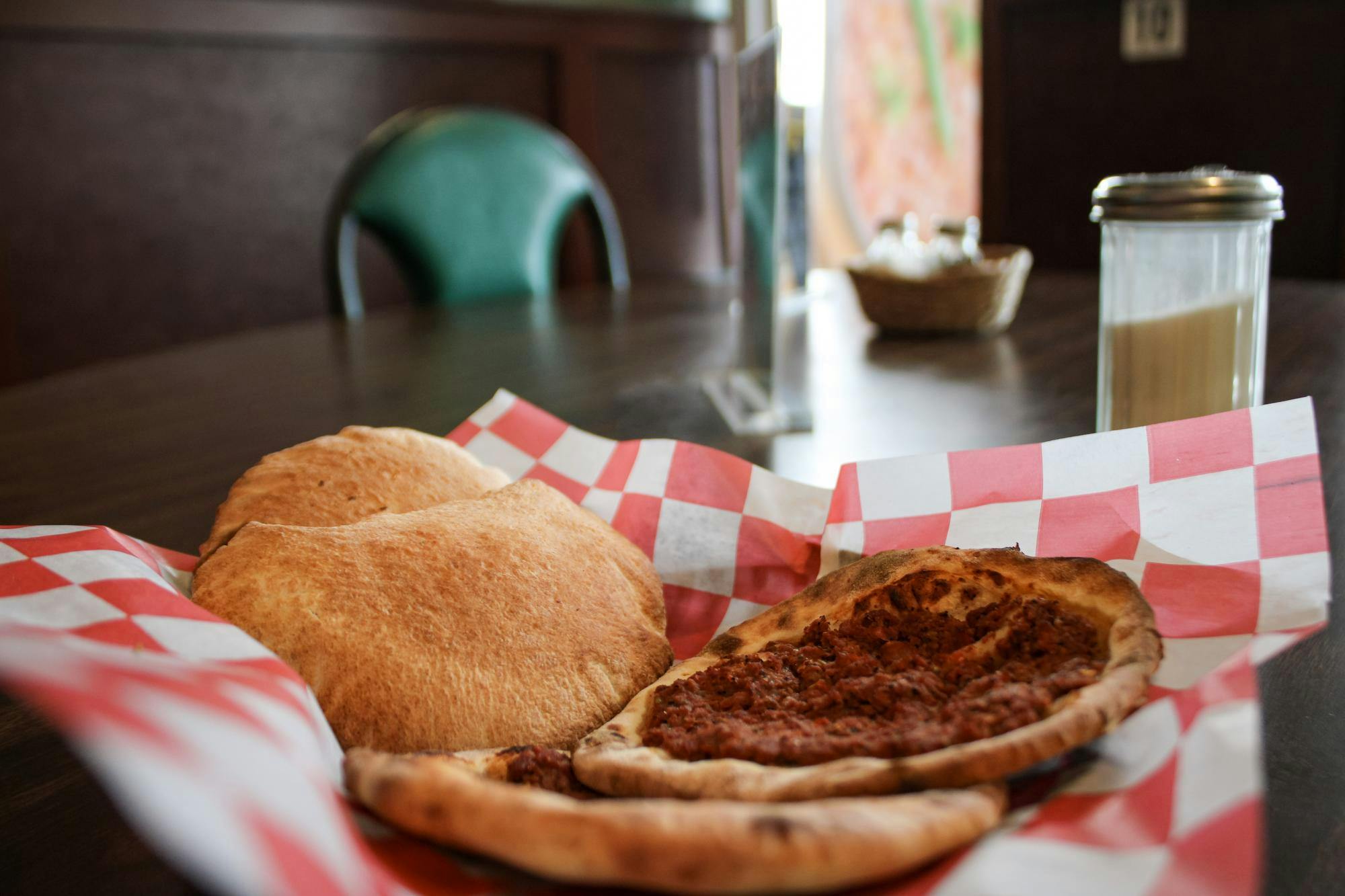In the kitchen of Lansing’s Siraj Bakery and Grill, owner Khaled Eshkuntana cooks fresh shawarma, falafel and hummus daily.
“I get to make something special for people in Lansing,” Eshkuntana said. “When people try my food, they’re happy.”

In the kitchen of Lansing’s Siraj Bakery and Grill, owner Khaled Eshkuntana cooks fresh shawarma, falafel and hummus daily.
“I get to make something special for people in Lansing,” Eshkuntana said. “When people try my food, they’re happy.”
The Halal-style restaurant opened in 2018, just 6 years after Eshkuntana and his family moved to Lansing from Jordan where Eshkuntana worked as a cook.

“It’s a dream for anybody to come to the U.S.,” Eshkuntana said. “Here we have everything. We have safety, we have freedom, everything. My son has a good future.”
The restaurant’s namesake comes from the Arabic word ‘siraj’ that essentially translates to ‘light.’
“Everything here shines,” Eshkutana said. “It’s different from my country. Everything is good.”
Lansing is home to about 12,400 people born outside of the U.S., according to 2021 U.S. Census Bureau data. Of that number, the majority of resettled community members come from the Democratic Republic of the Congo, Syria and Afghanistan, said director of refugee services for St. Vincent Catholic Charities, or SVCC, Chelsea Lafferty.
With the changing of political tides, refugee resettlement in Lansing ebbs and flows. Under the Biden administration, Muslim refugee blockages were lifted and there has been an increase in refugee arrivals nationwide.
This fiscal year, the refugee capacity is at 125,000 people and it is likely that capacity will be met this year, Lafferty said. This is the amount of people the U.S. can support through their Refugee Admissions Program.
The refugee services worked closely with Eshkuntana and his family when they moved to the U.S. in 2012.
“Here, there’s support for everything,” Eshkuntana said. “If you want to open a business, you can open a business. But it’s very hard. You can’t work part-time. I work 70 hours and two jobs.”
Through group grocery store visits, driver’s education and housing services, the goal of SVCC is to help refugees acclimate to life in Lansing. Among housing and job challenges, refugee community members must learn how to navigate American food systems, Lafferty said.
“Our folks come and they’re considered homeless,” Lafferty said. “They don’t have a place here in the U.S., and so we help them establish their home.”
The agency collaborates with the Greater Lansing Food Bank to provide refugees with produce and pantry boxes full of culturally appropriate foods upon their arrival, Lafferty said.
While food banks can provide basic food needs, sometimes more specific ingredients are overlooked or unavailable, Kimberly Steed-Page, director of the Student Parent Resource Center in the MSU Office of Cultural and Academic Transitions, said.
In fall 2022, there were over 4,000 international students enrolled at MSU, according to MSU’s Diversity, Equity and Inclusion Data Report from this year. That number does not include faculty and staff.
The MSU food bank is available to students on a weekly order pick-up basis at Olin Health Center. The Office of Cultural and Academic Transitions, or OCAT, seeks regular community feedback on the items they provide, Steed-Page said. In a recent survey, items specific to international cooking like Soya sauce, cardamom, clove and cumin were requested.
“These are things that I would never have thought of,” Steed-Page said. “They’re very specific international foods that the typical donor is not going to pick up.”
As a way to offset the lack of culturally-appropriate foods available, the center provides students with recipe ideas and information about the foods they can find in Lansing. Similarly, SVCC helps connect refugees to places where they can find the international products they need.
Support student media! Please consider donating to The State News and help fund the future of journalism.
“We help our clients find products that make Lansing feel like home,” Lafferty said. “They’re able to utilize the flour they use back in Afghanistan, they’re able to find the spices that they may have used in Ethiopia.
Beyond food assistance services, sprinkled throughout Lansing are international grocery stores and restaurants like Siraj that celebrate refugees’ cultures, Lafferty said.
“Students are willing to make sacrifices in other areas so that they can afford those foods that they eat from the international market,” Steed-Page said.
Eshkuntana said he reworked Siraj’s menu to lower the prices as a way to repay the Lansing community for the help they provide.
“I’m trying to help people,” Eshkuntana said. “This country helped me. They gave me support and now, I’m trying to give support to the people.”

At stores like Zz’s Market, Lotte Market and Fresh International Market, international community members are able to find ingredients that are rare in American diets, like goat meat, Steed-Page said.
“Things that they’re not necessarily finding at Meijer are considered ‘specialty items’ for Americans,” Steed-Page said. “Those things usually come with a higher price tag because we have labeled them as something special. But for them, it’s not. It’s a part of their natural diet.”
Lafferty said food is inherent to culture, making people feel welcomed, included and safe in their community when joining it.
“As an agency, we don’t try to acclimate folks’ diets to Western diets," Lafferty said. "We encourage them to keep their cultural identity and embrace that.”